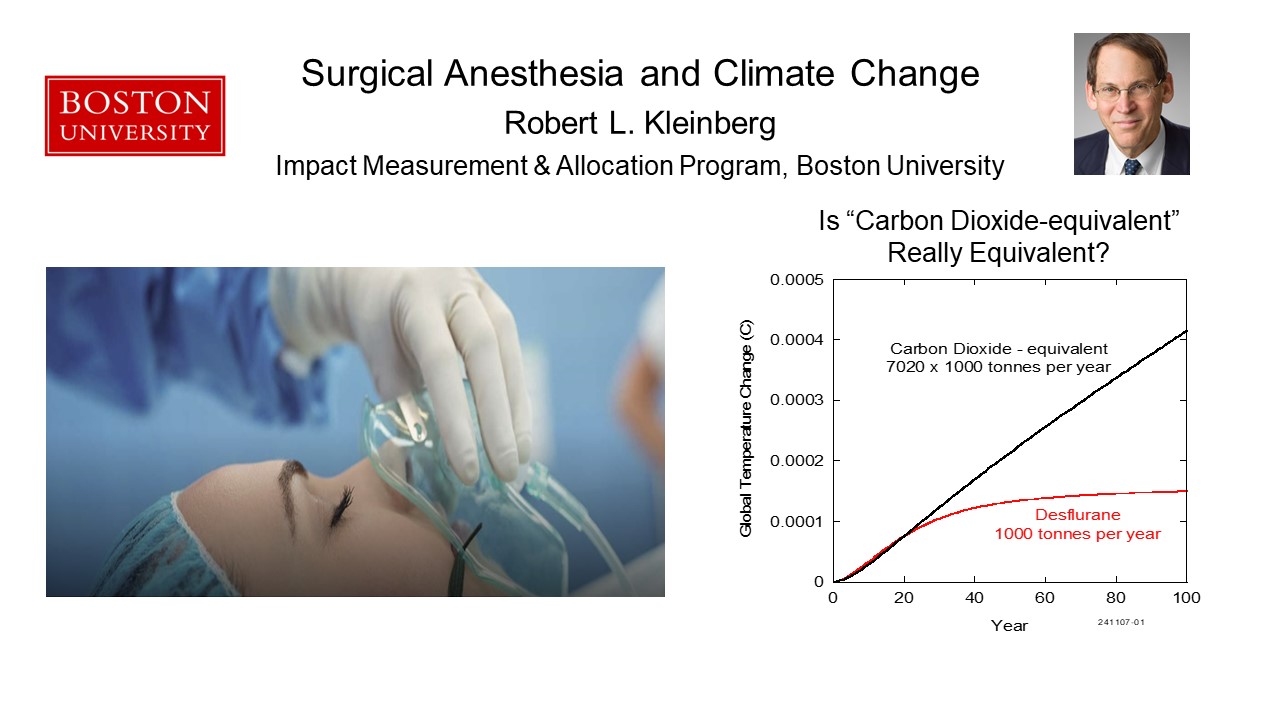

Since the first public use of anesthesia, on October 16, 1846, at Massachusetts General Hospital, advances in pharmacology have given anesthesiologists an ever-widening array of chemical tools. The most recent of these are fluorinated ethers, so-called F-gases, a prominent example being desflurane (C3H2F6O).
Desflurane is a specialty anesthetic agent. It is estimated that it is used in about four percent of the 300 million surgeries performed worldwide each year. Some anesthesiologists find certain sub-populations of patients benefit from the use of desflurane. These include morbidly obese, older and frail, pediatric, and neuro-compromised patients. Other anesthesiologists have found desflurane use to be unnecessary, or not worth its greater expense relative to other anesthetics.
Desflurane is also a powerful greenhouse gas. If scored by its twenty-year global warming potential, GWP-20, it is 7020 times more powerful than carbon dioxide. As a result of this fact alone, it has been banned from use in the UK National Health Service, in certain Canadian provinces, and as of 2026 will be strongly discouraged from use in the European Union. Currently, there are heated debates among specialists over whether desflurane bans should be extended on the basis of its climate effects or rolled back to allow anesthesiologists to use their own judgement in balancing individual patient welfare against broader concerns about climate change.
Climate change is one of the most important environmental challenges of our time, and all professions have the responsibility to make sure their practices are not contributing to this problem. Many anesthesiologists believe that desflurane, with its giant global warming potential, is a principal environmental problem of their profession and feel it is a moral imperative to eliminate its use from their own practices and to advocate for its universal prohibition. However, others argue that not every conceivable method of climate change mitigation is an appropriate target for regulation. In this presentation, I examine the balance between moral and technical points of view and present a possible resolution of this controversy.
IMAP Senior Fellow Robert Kleinberg will present. Register here: Monthly Lunch Seminars | Impact Measurement & Allocation Program
See this: Should Modern Surgical Anesthetics with Enormous Global Warming Potentials be Banned in Canada? May 2025, Canada Methane Conference poster.